Publications
Articles, publications, books, tools and multimedia features from the U.S. Institute of Peace provide the latest news, analysis, research findings, practitioner guides and reports, all related to the conflict zones and issues that are at the center of the Institute’s work to prevent and reduce violent conflict.
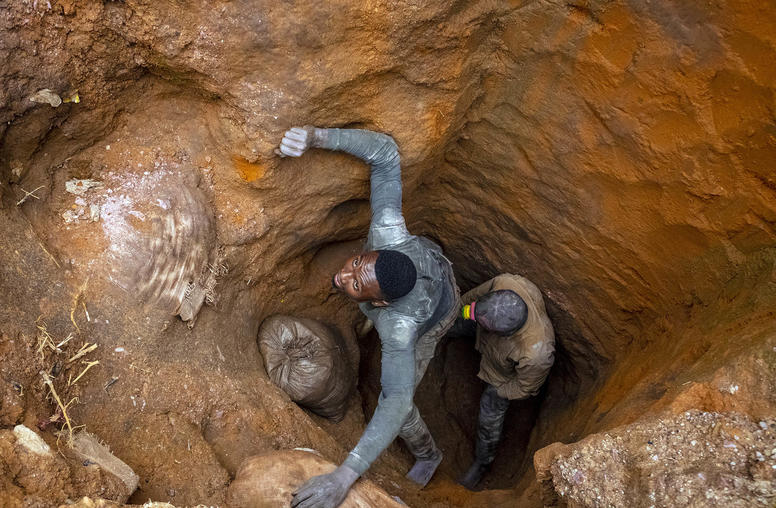
Why Africa’s Critical Minerals Are Key to U.S. National Security
A new USIP report emphasizes the importance of the United States government being engaged in the African critical minerals sector if it is to diminish its dependence on China and fortify its national security and foreign policy interests.
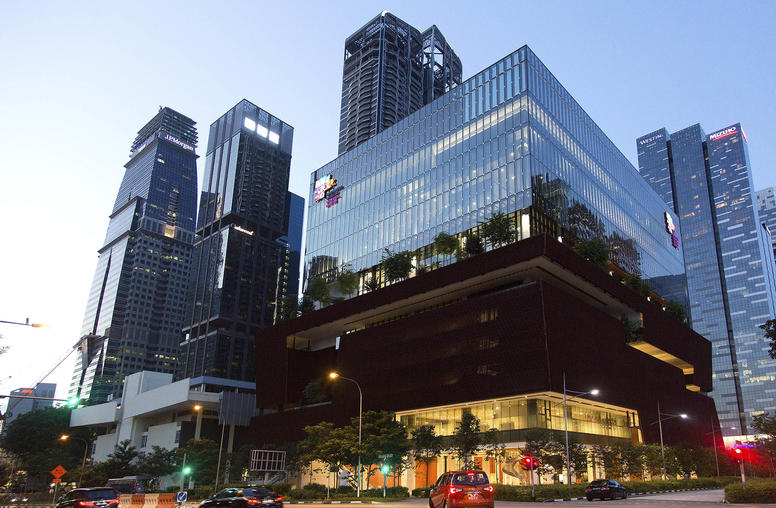
A Small State Heavyweight? How Singapore Handles U.S.-China Rivalry
Alice Ba pertinently observes in her introductory essay to this series that Southeast Asia has become a key arena in the ongoing U.S.-China rivalry; regional countries are under growing pressure to choose between the two powers. For Singapore, this competition has provoked a debate on the extent of agency in the conduct of the city-state’s foreign policy. Two perspectives have emerged in this regard.

Vikram Singh on the U.S.-Japan-Philippines Trilateral Summit
The United States, Japan and the Philippines are holding their first-ever trilateral summit this week. China’s “unprecedented” pressure and aggression over maritime claims will top the agenda. “There’s a fairly clear resolve … to not just let China bully its way to changing the status quo in the region,” says USIP’s Vikram Singh.

Whither NATO at 75?
NATO marked its 75th anniversary last week at a celebration in Brussels. While Russia’s invasion of Ukraine has injected the alliance with new life and resolve, the 32-member collective security pact is also wrestling with its future in a world of growing great power competition. In 2022, NATO formally identified for the first time China as a challenge to its interests and collective security. As NATO continues to support Ukraine and look to future global challenges, it also has internal issues to address, ranging from individual member defense spending to the problems posed by the need for collective decision-making among 32 members.

Myanmar’s Collapsing Military Creates a Crisis on China’s Border
Operation 1027 — an offensive launched in October 2023 by an alliance of three ethnic armed organizations (EAOs) against the military junta in Myanmar — has disrupted hundreds of forced labor scam syndicates operating under the protection of Myanmar’s army, dented the army’s image of invincibility and decimated the lucrative China-Myanmar border trade. A second operation launched on March 7 by another EAO in Kachin State has compounded China’s economic woes by adding to the impact on trade.

Increasing Information Access for the North Korean People
In recent years, North Korea has become more repressive, more impoverished and more allergic to the outside world. Already turning inward after the failure of diplomatic efforts in 2019, the North Korean government isolated itself further amid the global COVID-19 pandemic. North Korea has learned to operate, and Kim Jong Un has learned to rule, with greater levels of self-isolation than aggressive international sanctions regimes could ever hope to impose. Given North Korea’s current mode of rejecting even humanitarian assistance and its recent turn toward Russia, the chances for diplomatic breakthroughs with Pyongyang look like a wishful long-term hope at best.
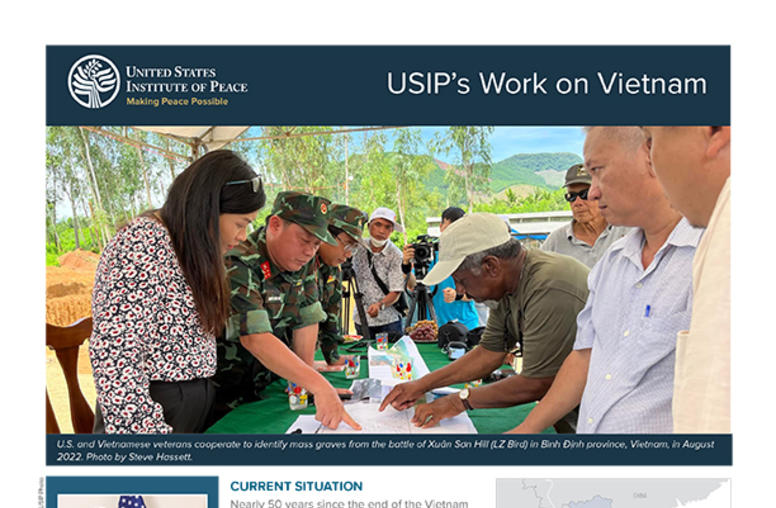
The Current Situation in Vietnam
Nearly 50 years since the end of the Vietnam War, and more than a quarter-century since the normalization of U.S.-Vietnam relations, Vietnam is emerging as a rising power at the heart of the Indo-Pacific region and an increasingly important U.S. partner. Once one of the world’s poorest and most isolated countries, Vietnam is now a middle-income country with a dynamic, young population and a promising future.

Huawei’s Expansion in Latin America and the Caribbean: Views from the Region
Since its founding in Shenzhen, China, in 1987, Huawei has grown into one of the world’s major information and communications technology companies, but its ties to China’s government and military have been regarded by US officials as a potential risk to national security. Latin American and Caribbean countries, however, have embraced the company for the economic and technological benefits it provides. This report explains the stark contrast between Huawei’s standing in the United States and its neighbors to the south.
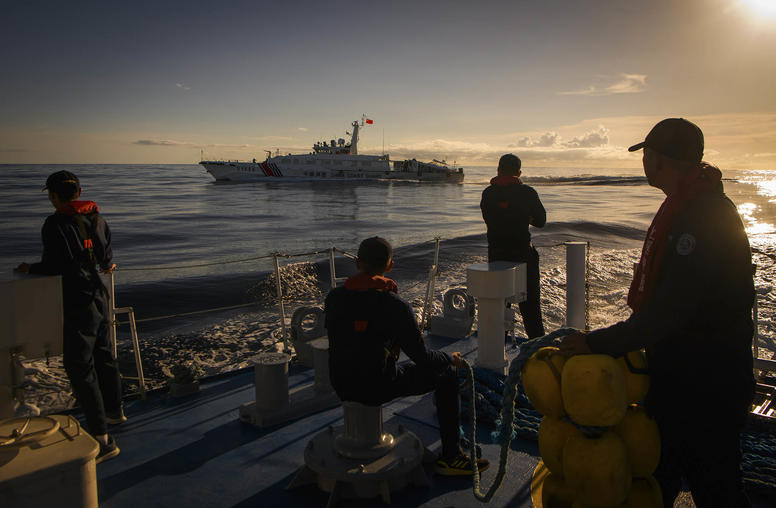
U.S., Japan, Philippines Strengthen Strategic Bonds to Counter China
Next week’s U.S.-Philippines-Japan summit comes against the backdrop of heightened tensions between Manilla and Beijing in the South China Sea, known as the West Philippines Sea in the Philippines. Last month alone saw two incidents of China’s so- called “gray zone” activities, with Chinese ships colliding with Philippines Coast Guard vessels on March 5 and blasting a Philippines supply boat with a water cannon on March 23. These disputes in the West Philippines Sea — an issue on which U.S., Japanese and Philippine interests closely align — will feature prominently when President Joe Biden, Philippine President Ferdinando Marcos Jr. and Japanese Prime Minster Fumio Kishida meet in Washington on April 11.
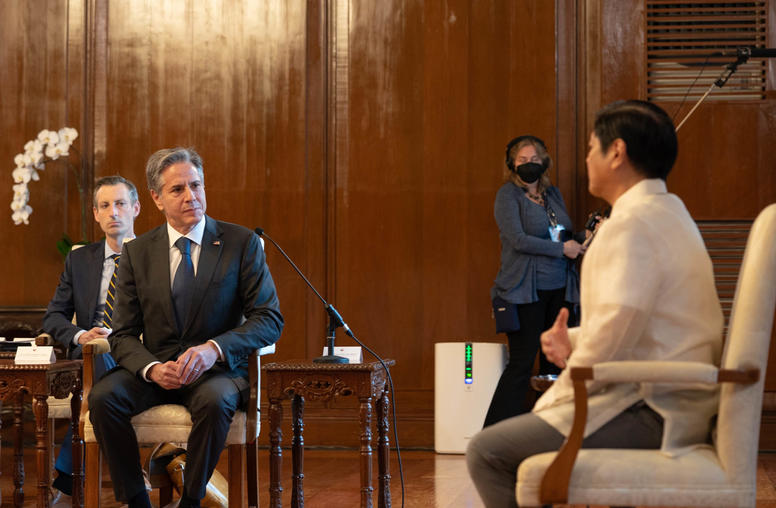
Bangsamoro Peace and the U.S.-Philippines Alliance
The election in May of Ferdinand Marcos Jr. as the 17th president of the Philippines presents an opportunity to reset U.S.-Philippines relations after six rocky years while President Rodrigo Duterte held the office. After Marcos’s sweeping election victory, President Biden called to congratulate him and then dispatched a series of U.S. officials to Manila, including Secretary of State Antony Blinken. Any concerns that the Marcos family’s corruption and lingering legal issues in the United States would hold up relations have been pushed aside due to the enormous interests the United States has in a functioning U.S.-Philippines alliance.